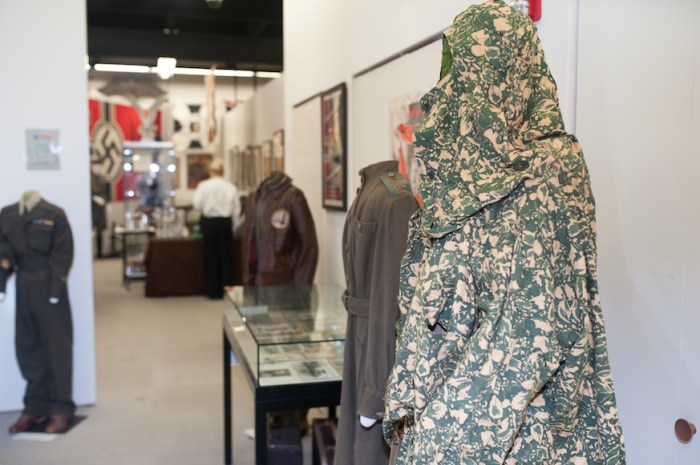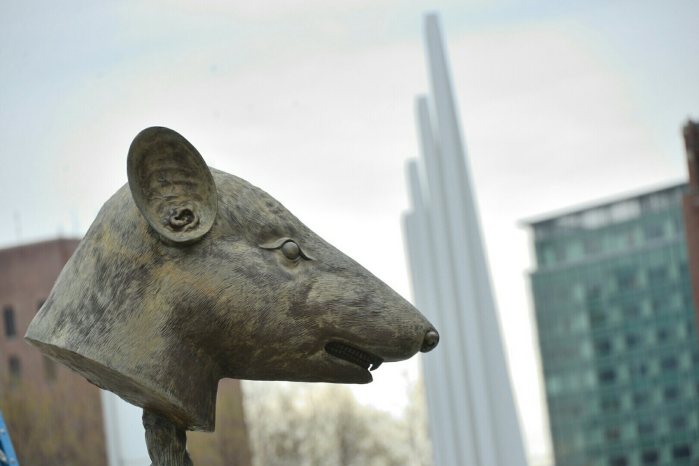A solo show by Lebanese artist Walid Raad debuts at the Institute of Contemporary Art in Fan Pier today. The feature is broken into two parts: “The Atlas Group” and “Scratching on Things I Could Disavow.” ICA Boston’s Curator Eva Respini describes the latter, which focuses on art in the Arab world, as posing questions about the construction of history, one inextricably tied to art. This includes questions of who gets to tell history, who has the authority to tell it and how it is told. For select performances, Raad (live, in-person!) takes on the persona of investigator as he recounts his journey of creating the pieces. However,if you’re going to the ICA while he isn’t there, here are five things you should know before seeing it. 1. It starts with Raad’s invitation to the Artist Pension Trust (APT), which is an institute that offers select artists a contract to create 20 works of art in 20 years. APT also owns the largest global collection of contemporary art and Raad discovered that it works in association with MutualArt. Upon further research, he found that Moti Shniberg, APT’s Chairman and co-founder, had ties to Israel. This collection looks at the relationship between art, politics and war and how art has changed over time. 2. Art is linked to politics and war. Raad, who was born in Lebanon, focuses much of his work on Lebanon and Arab countries. “The Atlas Group” documents Lebanon’s history, including its two wars. He theorizes that if war can affect people physically and psychologically, then it can affect color, lines, shapes and forms similarly. 3. Raad imagines the future of art. Midway through the exhibit there is a turn to an almost fantastical imagination of art’s future. The misspelled names of future artists are scrawled across a wall. Raad claims he received them telepathically and the misspellings were a result of extraneous “noise.” He believes this was intentional, a way for artists to tell him something about art in the future. 4. Saadiyat Island is becoming an arts center in Abu Dhabi. On the Island of Saadiyat, which translates to “The Island of Happiness,” there are a number of plans to build monumental museums. Frank Gehry is designing the largest Guggenheim museum in the world and a branch of the Louvre is in development. 5. With the building boom of museums, Raad predicts new reactions to art. A sculpture of doors opening to a new museum rests along one wall. A man resists entrance, claiming he would hit a wall if he were to continue. The police arrest him and newspaper headlines read, “Demented Man Disturbs Opening — Claims World is Flat.” Raad predicts this to occur sometime between 2014 and 2024. If you go:
Walid Raad Raad’s Performance Schedule Wednesday, February 24, 2PM
Feb. 24 to May 30
ICA Boston, West Gallery
100 Northern Ave, Boston
(617) 478-3100
A limited number of same-day 55-minute performance tickets will be available at the museum on a first-come, first-serve basis. Tickets are required and are free with your museum admission.
Thursday, February 25, 7PM
Thursday, March 17, 6PM
Friday, March 18, 1PM
Saturday, April 9, 2PM
Sunday, April 10, 2PM
Thursday, May 12, 7PM
Friday, May 13, 1PM
Saturday, May 14, 2PM

















